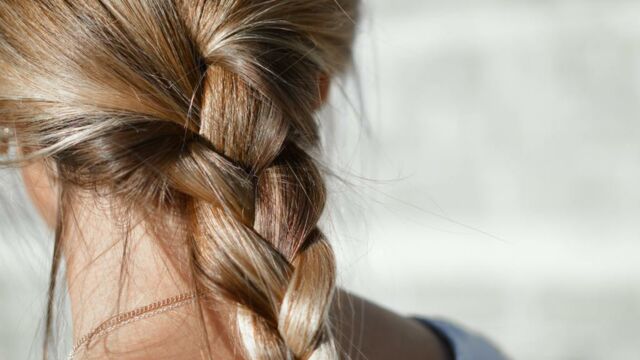It should come as no surprise that people's bodies go through a multitude of changes during pregnancy. After all, having another human being growing inside you is probably one of the most life changing things that can happen to you.
Discover our latest podcast
Hair becomes thicker before falling off
But aside from the more immediate physical changes that arise from pregnancy, hair loss might have been one that you were not aware of. So, why do people that can give birth lose their hair as a result of it?
Libby Matthews, founder of Dose & Co says that during pregnancy, one's progesterone and oestrogen levels increase exponentially. She explains:
Oestrogen is a hormone that has a powerful effect on different systems in the body including skin and the growth pattern of your hair. While pregnant, women may notice an improvement in skin and hair quality.
And adds:
It’s normal to shed around 50-100 hairs per day, however during pregnancy the high levels of oestrogen encourage the hair to stay in the growth phase, so the hair will shed less. But after birth, oestrogen levels decrease rapidly and cortisol can remain high, causing an imbalance. Due to this, mixed with lack of sleep and possible nutritional deficiencies, hair can fall out.
In other words, it is not only the act of giving birth itself that can cause your hair to fall off but rather an amalgamation of factors that come about as a result of having to take care of a new born child.
This hair loss is more commonly visible about 12 weeks after giving birth while brushing your hair or in the shower. But worry not as this is normal; your hair will eventually stop falling off and will go back to its natural pre-pregnant state.
How to manage postpartum hair loss?
Unless the hair loss continues after almost a year postpartum then that should be a warning sign for you to go seek medical attention as this could be the result of an underlying health condition such as anemia.
However, some tips to help you manage the loss of hair before things go back to normal include:
- Taking prenatal vitamin supplements to help fight against any nutritional deficiencies
- Avoid using any chemical-based treatments as well as heat devices on your hair
- Avoid washing your hair daily. During this period, being extra gentle with your hair is key.
- Add foods that promote healthier hair to your diet such as; fish, eggs, sweet potatoes, carrots, spinach, beans, asparagus, walnuts, sunflower seeds, and blueberries.















